Recently, I’ve been considering why neither solutions nor tools are as helpful as we often make them out to be. Both promise clarity and resolution, but they often come at the cost of curiosity and depth. They give us something to hold onto, but they also limit what we’re willing to see.
For me there’s a thrill in the complexity, the messiness, the not-knowing. It’s in this space of uncertainty that I feel most creative, most alive. But the moment someone offers a solution, something in me recoils. The magic evaporates, the mystery dissolves, and I’m left with something that feels flat, lifeless, and oddly dissatisfying. It’s not that the solution is wrong or unhelpful; it’s that it closes the door on exploration. It replaces the fertile ground of inquiry with the sterile certainty of an answer.
And yet, here I am, about to propose a way forward. Nonetheless, perhaps there’s a way to offer a “solution” that doesn’t close the door - a way to point toward something without claiming to have the final answer. Perhaps the way forward isn’t a settled solution at all, but a practice, a mindset, a way of being that keeps us open to the messiness of life.
In Pursuit Of Open-Endings
For much of my life, I have been searching for a way to stay in the open-endedness, to dwell in the space of questions. This is what stills my hunger for exploration and keeps me alive to the possibilities of life. There’s something profoundly nourishing about not having everything figured out, about allowing the unknown to remain unknown. When I experience this openness is when I feel most myself, most connected to the world. It is when I have enough space in my mind and body to resonate, and I feel most free to grow.
Or as Tom Morgan poignantly said:
“Curiosity is my brand. I believe it reflects a relationship with a benign evolutionary force.”
I couldn’t agree more. Yet, for a long time, I found this super challenging.
Maybe you've noticed this in your own life. Others seem to be able to settle - on an idea, a way of being, a persona, a belief, a job, or a passion - but for you, all these things remain far more fluid. It’s not that you lack commitment or focus; it’s that your soul seems wired to resist closure. You need to explore, to experiment, to remain in motion. While others find comfort in stability, you may find it in the act of questioning, in the process of becoming.
For a long time, this fluidity seemed like a flaw or a phase.
But it was, and still is, an essential part of who I am.
To stay in the open-endedness is to honor that part of ourselves.
Interestingly, according to Cognitive Behaviour Therapy, what typically causes emotional disorders is overconfidence in our dogmatic interpretations of the world.
Open-endedness is not a mindset - it’s a way of being in and with the world. It’s resisting the pressure to finalize, to define, to settle. It’s embracing the messiness of life and finding beauty in the unresolved. It’s the recognition that growth happens in the in-between spaces, the cracks, as Bayo Akomolafé would say, in the moments of uncertainty and transition.
Open-endedness is not a mindset - it’s a way of being in and with the world.
Open-endedness is staying present to what is, while remaining curious about what could be. And perhaps most importantly, open-endedness is relational - it’s engaging with the world in a way that allows for resonance, for connection, for the unexpected. It’s not rejecting answers altogether, but holding them lightly, knowing that they are provisional, temporary, and always subject to revision.
Open-endedness is exploration, practice and ongoing inquiry.
Life itself can become a practice ground, in which we embrace that we are never “there”, but always in the preliminary, in the trial-and-error of not-knowing.
And again, I am not saying open-endedness itself is the solution, or that there should be no solutions at all. If I want to eat healthier, I want someone who knows about health to offer me a solution. The same goes for becoming fitter, or for building a house. Any largely mechanical task will entail certain solutions, though varying degrees of uncertainty may still creep in. Building a house is different from getting fitter. The latter has some mechanics, but it also has many unknown, unpinnable, unquantifiable, almost mysterious layers to it.
While we think we can figure out the mechanical part, especially in academia, we tend to take it a step too far. Our mechanistic philosophies have convinced us that all things are just that, which clearly they are not. Inner development, personal growth, our psychology, who we are and who we are becoming - none of these are mechanical. They might include a few mechanisms, but not at the core. That’s why the last self-help book you read may have enriched the author’s life by millions while not doing a thing for you.
“This philosophy, known as holism, explains why I get different results each time I bake bread in my own kitchen, even using exactly the same recipe.” – Lisa Feldman Barrett
The reason you should refuse to focus on methods, tools and solutions is that joy and true growth in life comes from creating these methods, tools and solutions. As you will find, testing new techniques, forging your own path, and “figuring it out” are deeply spiritual experiences.

Practical Philosophy
Allowing open-endedness to be is - and this won’t surprise those who have read my essays for a while - what I discovered through practicing philosophy.
Philosophy has, at its core, always been the tool for going toolless, the solution for avoiding solutions, the never-ending question. And if you did it “right,” it wasn’t a tool or a solution at all, but a way of life, as French philosopher Pierre Hadot famously pointed out.
According to Pierre Hadot, philosophy, at its core, isn’t limited to the analytic philosophy that we mostly find today, nor to abstract theories or rigid systems of thought.
Instead, it is a way of life - a set of practices aimed at transforming how we see and live in the world. For Hadot, philosophy was about askēsis, a Greek term meaning spiritual exercises or practices. These exercises - meditation, dialogue, self-examination - were not meant to provide answers, but to cultivate a way of being that keeps us open to inquiry, to wonder, and to the mystery of existence.
When I came across his work, it deeply resonated with my own experience of open-endedness. He argues that ancient philosophers like the Stoics, Epicureans, and Skeptics were not concerned with constructing dogmatic systems but with helping individuals live more authentically and harmoniously. They understood that life isn’t a problem to be solved but a reality to be experienced. This is the essence of practical philosophy: it refrains from offering easy answers and instead invites us to live with questions, to remain present to life as it unfolds.
Practicing philosophy helps us to bring our ways of knowing, being and acting in resonance with our ecos (our home, which could be our mind-body, our physical home as well as the ecosystems we are part of).
Michel Foucault, in his later work, builds on this idea by exploring the concept of care of the self. Just as for Hadot, for Foucault, philosophy was about transforming oneself through practices.
These practices were never limited to a solitary pursuit, but a communal one. They were meant to be relational. Foucault acknowledged (perhaps not in these exacts words) the relational nature of the world, our entanglement, co-creation and intra-action with others and the world, through which we are all continuously becoming.
This relational dimension is crucial to open-endedness because it’s that relationality that opens thing up in the first place, that we are open systems that detangle and re-entangle constantly.
Open-Endedness as a Relational Practice
Open-endedness, then, is not just a mindset - it’s a relational practice that involves engaging with the world in a way that allows for resonance, for connection, for the unexpected. This relational aspect is central to practical philosophy, and is also what makes open-endedness so vital to personal growth.
These practices aren’t meant to be separate from everyday life; life itself is the practice. And that practice is what some (myself included) refer to as “living philosophically”: constantly inquiring, exploring, staying in the liminal space of now-knowing, of uncertainty. Because it is only in that space, that we can truly resonate with the world. And to be in resonance is to be healthy.
These practices aren’t meant to be separate from everyday life; life itself is the practice.
When we allow ourselves to stay in the space of questions, we create the conditions for resonance - for those moments of deep connection and alignment that feel both personal and universal. Resonance, as Hartmut Rosa describes it, is not just a feeling, but a way of being in the world. It’s that openness that lets us tune into what feels alive and meaningful and allows it to guide our actions and choices.
In that space, solutions exist not in their finality, but are acknowledged in their incompleteness.
Martha Nussbaum would agree, I think. In her work on the fragility of goodness, she argues that a good life is not one of certainty or control but one of vulnerability and openness to the unexpected. For her, its in this unpredictability where the richness of human life lies, in its capacity to surprise and challenge us.
As I mentioned earlier, the joy of life doesn’t lie in following someone else’s methods, tools, or solutions but in creating our own - even if that “someone else” is who we were five years ago. Figuring things out is a deeply spiritual experience and, to me, the only path to a meaningful life. It’s the essence of practical philosophy - not providing answers, but cultivating the capacity to live with questions and to embrace and resonate with the messiness of life in all its facets.
Jessica explores the art of practical philosophy, helping others develop their own philosophy to navigate the challenges of the Anthropocene. Her work is a blend of interdisciplinary insights—from ecology and sustainability to spirituality and psychology—crafted into wisdom you can apply to daily life.
For more thought-provoking reflections on living a good life in a complex, changing world, visit Wild:Philosophy to discover how to live in right relation, embrace paradoxes, and thrive in the gooey soup of meaning-making.
A significant source of inspiration for this essay was an ecological inquiry session with the wonderful Anna-Marie Swan, Relational Being and Evva.

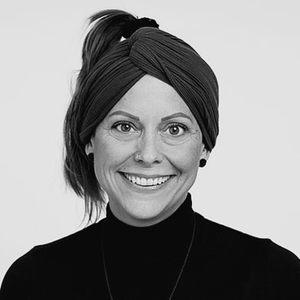
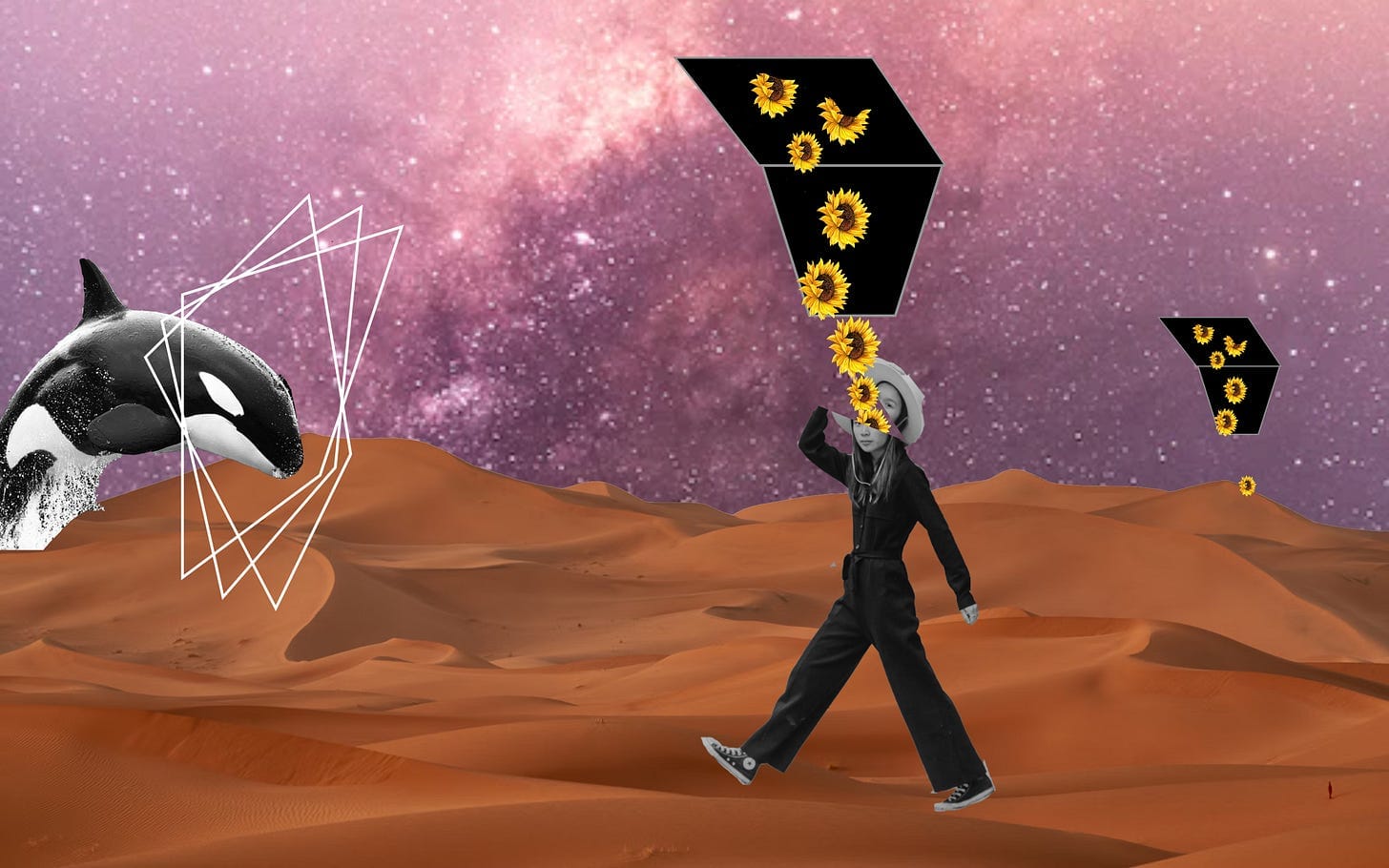
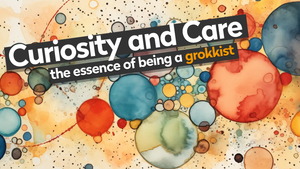



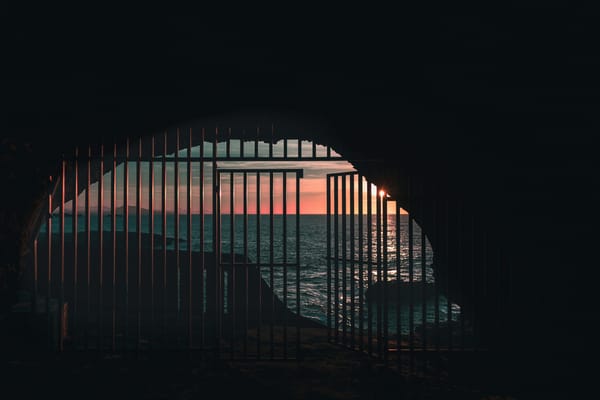
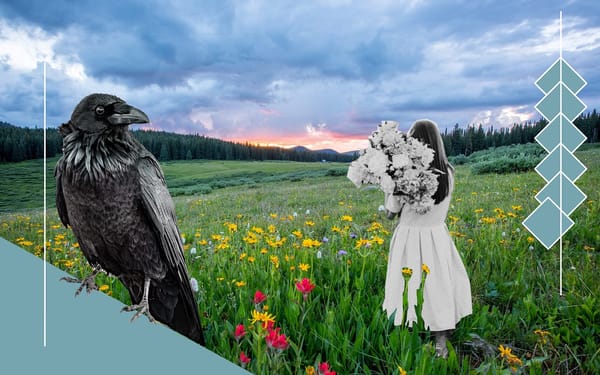
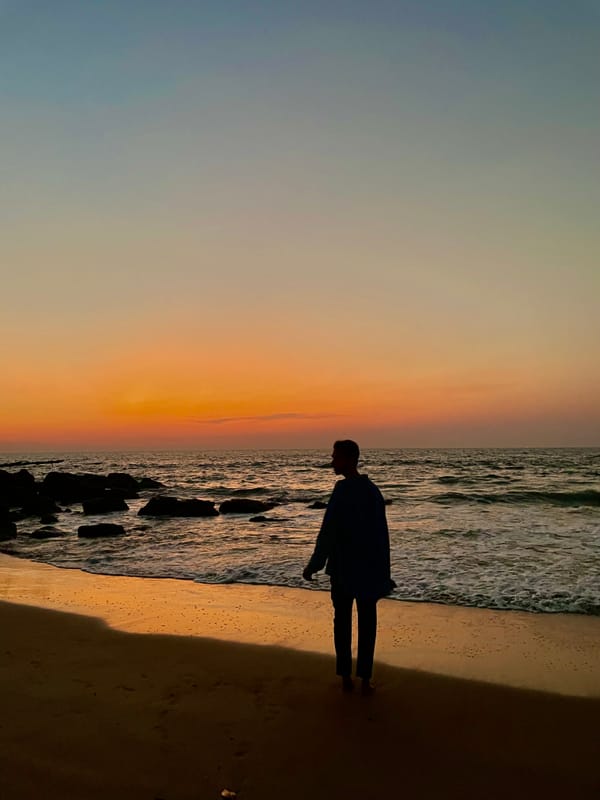
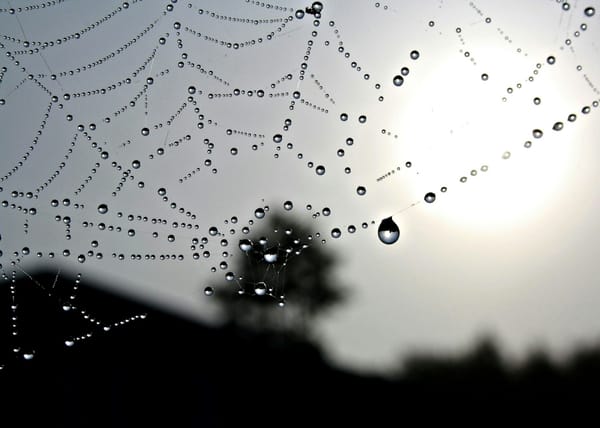
Member discussion